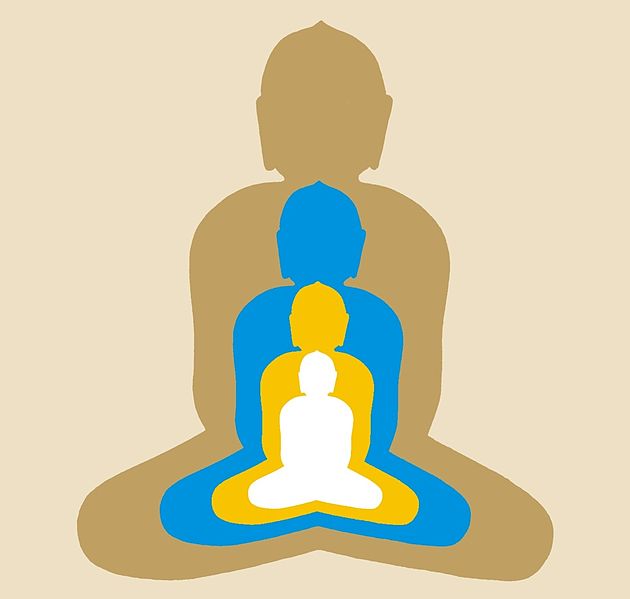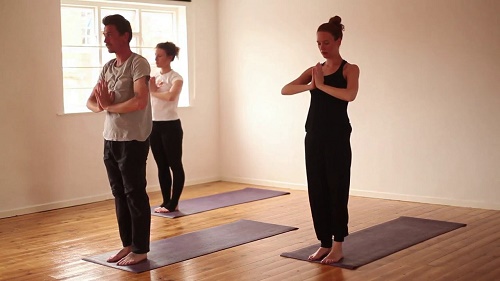J. Krishnamurti Speaks on the Atman
J. Krishnamurti and The Soul
From: Krishnamurti to Himself – His Last Journal
Chapter: Monday, April 18, 1983 – Pgs 66 – 67
Published By: HarperSanFrancisco
Quote From J. Krishnamurti:
“…is there an area in the human brain, or in the very nature and structure of a human being, not merely in the outer world of his activities but inwardly, deep in the vast quiet recesses of his own brain, something that is not the outcome of memory, not the movement of a continuity?”… “There is most certainly, definitely, an area where the past doesn’t cast a shadow, where time, the past or the future or the present has no meaning.”… “You can’t ascend through knowledge; there must be an end to knowledge for the new to be. New is a word for something which has never been before. And that area cannot be understood or grasped by words or symbols; it is beyond all remembrances.”

Most of the avid readers and students of Jiddu Krishnamurti are quite familiar with his profound teachings that are woven throughout his many books, talks and recordings. It has also been my experience, when speaking to some of his most ardent fans, that over time they don’t continue to read his works regularly as they don’t find much more in the way of new teachings. The quote above, though might be something a little different. It is one that offers a glimpse into his thoughts about that aspect of human nature which is beyond everything. Although it may be a stretch to indicate that he is commenting on the Hindu concept of the “Atman” or soul, it does reverberate with the same description that is often used to describe the Atman. Part of which describes the Atman as that aspect of Human Nature that is beyond time, space and self (ego), is untouched by anything worldly and cannot be grasped by thoughts.
Additionally, his more traditional comment regarding the need for the end of knowledge is of course, etymologically speaking, the definition of Vedanta (Veda – knowledge; Anta – End). Before I continue, I just want to clarify that my objective here is not to try to equate, compare or debate Krishnamurti’s teaching with Hinduism; I am just trying to reveal, in a different light, what will hopefully be some aspects of his teachings that I find to be more uncommon. So the above insights essentially point to a part of our being which cannot be realized through knowledge. This aspect becomes visible to us when the activity of memory (thought) ceases to grab our attention and pull us outwards. It is there when there is nothing.




hi group
j krishnamurthi speaks about atman , i agree with these words but partially what i agree with is , yes there is a portion of the brain with is not related to thought process and time . but that is not soul or atman . atman is not some thing that can be experienced by physical body or molecular mind. i am using molecular after several experiments with the process of mind.
meditation has more impotent role than we realize. atman / soul are words which are associated with several ideas given to us from ancient and modern scriptures. but the area that j speaks is very new in every one and unique in all individual.this is the “1st step of the last step”that j refers. until we have started this area we are not even on the uncharted path , rather just revolving in viscous net of thought. what steps of efforts or effortlessness leads to awaking of this area can be discovered us and only us. by by dialogues we need to keep sharing our experiences.
i am ashish ,
feel free to call me on my no.9818714047
9543412856 any time 24hrs
mail me on
any personal query can be directed to the email ashishtheenlightend@gmail.com
lets see how deep the rabbit hole is ………………………
Nur,
You have asked some very good questions. Yes I have experienced these states. I have discussed exactly what you are asking in Chapter 12 of the Silent Mind Meditation Program (link below). I will summarize it here briefly…
Intellectual understanding will help you in the process of comprehension via direct perception (insight meditation), but it alone will not bring about a transformation. Here is the link to the chapter with the details of this discussion…
Silent Mind Meditation Program: The Silent Mind Meditations: Chapter 12:
https://anmolmehta.com/2007/01/25/silent-mind-meditation-the-sm-meditations-chapter-12/
You have really asked a very good question, I hope you will follow through on this question as it contains the potential to see you all the way through.
Have a question for you? How do you reach this stage of no knowledge? Is it through meditation alone? Isn’t it necessary that some amount of reflection and understanding of self and our fears needs to be done, so we may let them go. Isn’t knowledge of ourselves and our fears a prerequiste to do the work of sowing the garden that wil blossom into the flower of Peace, or is the way of meditation, Yoga etc enough?
Appreciate your feedback and glad you are enjoying the Masters of Meditation posts. You are absolutely correct about one’s state of mind (and life) when encountering the teachings of J. Krishnamurti. It requires a fair bit of maturity and open mindedness, along with emotional balance, to really appreciate and digest the insights he is trying to ignite in you.
Hi, I am glad you are putting this section up. I myself was introduced to Krishnamurti just a few years back. My initial reaction to his "ramblings" was "what the freak is this man doing? – why is he spinning the question out and about and saying nothing about it yet everything about it?" Then when I finally had the frame of mind to read his works – I realized that what he was just trying to do was put the question back to the questioner in order to have them understand it and thus realize the answer (truth). I look forward to seeing your daily quotes from other great people with the same awareness. Thank you for your work.